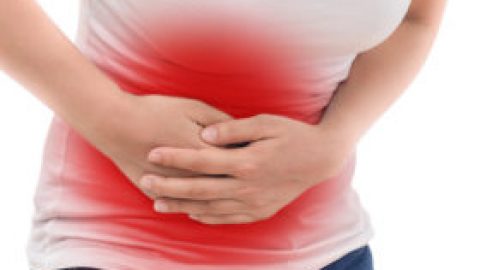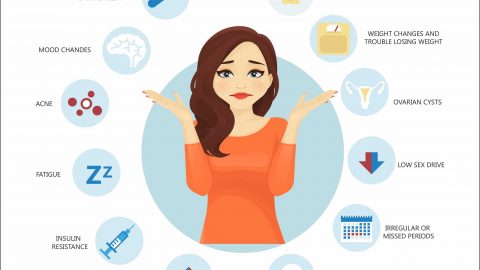Life Style Management
An improved lifestyle management in Polycystic ovarian syndrome starts with a healthy diet, regular physical activity, and maintaining a healthy weight. Certain changes in lifestyle, such as diet and exercise, are measured as first-line treatment for adolescent girls and women with polycystic ovarian syndrome (PCOS).
Lifestyle management in PCOS has the following benefits:
- Improves insulin resistance
- Regulated hormonal imbalance
- Improvement in menstrual cycles
- Improves fertility
- Prevents long-term complications like type 2 diabetes
Cosmetic manifestation is a key aspect in the lifestyle management of women with PCOS. For example, excessive hair on the body is an exceptionally distressing symptom in a patient of PCOS. At adolescence or adulthood, the reason why women with PCOS look for a treatment is because of the manifestation that is visible on the face. Lifestyle management in Polycystic ovarian syndrome includes the right type of nutrition, exercising regularly and maintaining sleep cycles.
Here are five ways in which how you can improve your life with PCOS
1. Regular sleep cycle:
Contemporarily adolescents and young women have erratic sleep cycles because of their disturbed routines. And they don’t follow something called the diurnal rhythm. This cycle mandatory by nature for everybody to have a regular sleep cycle. What is that? A diurnal rhythm is a biological rhythm that deals with the synchronization with the day/night cycle. Like when it is dark, it’s time to sleep, and when the sun is out when there is the light, we need to wake-up and start with the day. This cycle should keep on going to maintain good health.
But what do we see contemporarily?
Nowadays, we can see that the sleep cycle is post 2 A.M and waking-up post noon. This sleep cycle is against the diurnal rhythm and is considered one of the primary reasons why there is a hormonal disturbance in women with PCOS.
2. Diet:
The second major factor for lifestyle management in polycystic ovarian syndrome is diet. And the diet that is followed by the youngsters it is loaded with junk food, CRAP and an unhealthy nutrition-less diet which should be strictly avoided.
What does CRAP stand for?
C for Colas, R stands for refined food, A stands for alcohol, and P stands for packaged foods. And the essential step for lifestyle management in polycystic ovarian syndrome is to avoid the CRAP to keep their nutrition right. It will help women with PCOS to reduce the damaging effects of fast food on their bodies.
Eating wisely is not so tricky for lifestyle management in polycystic ovarian syndrome. The five food from your kitchen can help women with PCOS with all the problems.
- First, consume oats daily, oats are rich in beta-glucan, rich in fiber, binds cholesterol, gives you fullness, increases satiety, and helps you lose weight
- Second, Nuts loaded with fatty acids give you satiety, rich in omega-3, will have lots of anti-inflammatory properties as well
- Third, curcumin (Haldi), it also has anti-inflammatory properties
- Fourth, flax seeds, rich in fiber and omega-3 fatty acids
- Fifth, Fenugreek seeds (Methi), grind, roast, or soak it for consumption. It is a very good insulin sensitizer
Try all of this from your kitchen it works.
3. Reduce Sugar and Carbohydrates:
Women with PCOS are insulin resistant, in which the body does not use the insulin produced by the hormones effectually. But the Insulin, which is produced by the pancreas, allows the body to use glucose, or sugar, from food for energy. It also helps to keep the blood sugar levels in check. If a woman with PCOS has high blood sugar, to lower the blood sugar your doctor can recommend eating a diet low in sugar and other simple carbohydrates.
The perfect diet contains a variety of food from several food groups—healthy carbohydrates, such as fruits and vegetables; thin meats, such as chicken; fish; and high fiber grains. Doctors usually advise focusing on foods that are low in sugar and fat and have a low glycemic index. Food with a low glycemic index allows the body to produce insulin slowly and steadily, and make it easier for your body to use food as energy rather than storing it as fat.
As carbohydrates wreck into sugar, it is good to limit your sugar consumption. Avoid the use of refined carbs, which are usually present in processed or packaged foods, especially white flour, rice, potatoes. Also, try to avoid sugary drinks like juice and soda.
4. Exercise:
It is needless to mention the importance of exercise in the process of lifestyle management in Polycystic ovarian syndrome. Exercise plays a crucial role in reducing the body mass index (BMI). The reduction of body mass index in women with PCOS works out exceptionally well in regularizing the menstrual cycle and it helps to reduce the pigmentation that is the manifestation on the neck, which is called Acanthosis Nigricans. Exercise may not have a direct impact on acne and hirsutism, but it improves the metabolic and the inner health of the women with PCOS. So, remember, it always depends on the diet, exercise, and regular sleep that will help you more than the other medications that polycystic ovarian syndrome can be treated with.
5. Weight management
Not all women with PCOS are overweight. But Over time, women with PCOS may become obese. That can become a root cause of many health problems, like infertility, type 2 diabetes, and heart disease. Weight loss is more difficult than diet plans. Achieving weight loss depends on having realistic targets and regularly routine that can be achievable and can be kept up.














